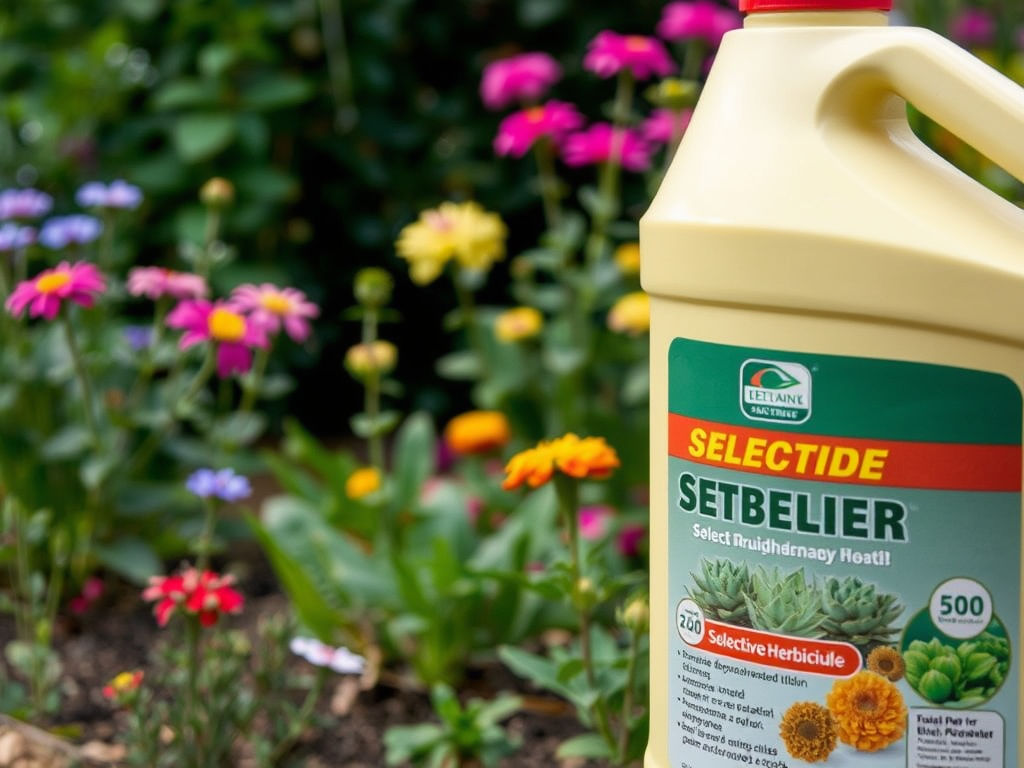Choosing the right weed and grass killer is not just about picking a product off the shelf; it’s a pivotal decision that can make or break the health of your garden. Imagine a garden thick with green flourishing plants, free of invasive weeds that suck the life out of your cherished blooms. To achieve this vision, you must understand the various types of herbicides available and how they can be effectively used. With so many choices—selective, non-selective, organic, chemical—navigating through the options can feel overwhelming. However, a deeper understanding of your garden’s unique needs will empower you to make informed decisions that promote a healthy growing environment. By the end of this article, you will be equipped with knowledge to choose the best solution for your garden’s specific challenges.
Understanding the Importance of Choosing the Right Product

Your garden is an ecosystem that requires balance. Choosing the right weed control product not only helps remove unwanted plants but also fosters a healthy growing environment for your desired flora. A poor choice can lead to the destruction of beneficial plants, harm pollinators, or even impede future growth. Furthermore, some products are more aggressive than others, potentially causing long-term soil contamination. The stakes are high, but so are the rewards when you select wisely. The key is to match the product to the specific conditions and requirements of your garden.
Types of Weed and Grass Killers

There are primarily two categories of weed and grass killers, each serving a distinct purpose. Understanding the differences will help you determine which is best for your garden. While non-selective herbicides eliminate all plant life they contact, selective herbicides focus on killing specific weeds. Depending on the nature of your garden, either type can be effective. To further help you navigate the choices, let’s explore the different formulations available.
| Type | Description | Best Use |
|---|---|---|
| Liquid Concentrates | Mixed with water for wide-area spraying. | Large gardens or extensive areas with heavy weed presence. |
| Granular Products | Easy to apply with slow release, effective over time. | Small gardens, landscape beds. |
Key Factors to Consider
When selecting a weed killer, several factors must be taken into account.
- Type of Weeds Present: Are they annuals or perennials? This determines the most effective herbicide.
- Safety for Children and Pets: Always check for pets and children safety and choose low-toxicity products if necessary.
- Environmental Impact: Consider eco-friendly options to minimize harm to beneficial insects and soil health.
Each of these factors contributes not only to the effectiveness of the product but also to the overall safety and sustainability of your garden practices. Moreover, understanding how each product interacts with your garden environment will lead you toward making a responsible choice.
Tips for Effective Application
Applying weed and grass killer is an art in itself. Successful application can increase its effectiveness and minimize unintended harm to desirable plants. Here are some actionable tips for best results:
- Read the label directions thoroughly before application.
- Choose calm, dry days to prevent drift or wash-off from rain.
- Apply during the early part of the day for optimal absorption by plants.
Conclusion
Choosing the best weed and grass killer for your garden is a layered process that requires thoughtful consideration and understanding of your unique circumstances. The types of herbicides, their application methods, and their safety profiles all come into play when making your decision. By closely examining your weed problems and the various options available, you can select a product that protects and enhances your garden. Remember, a well-maintained and healthy garden is a reflection of the time and care you invest in it.
Frequently Asked Questions
- What is the difference between selective and non-selective herbicides?
Selective herbicides target specific weeds while leaving other plants unharmed, whereas non-selective herbicides kill all vegetation they touch. - Are there organic options for weed control?
Yes, there are many organic herbicides available that use natural ingredients to combat weeds effectively. - How should I apply herbicides for best results?
Follow the manufacturer’s instructions, apply during calm, dry weather, and consider the time of year to maximize efficacy. - Can I use weed killer around my vegetable garden?
It’s essential to choose selective herbicides that won’t harm your edible plants, and always read labels for safety guidelines. - How long does it typically take for weed killer to work?
This can vary by product, but most herbicides take several days to a few weeks to show noticeable effects on weeds.


